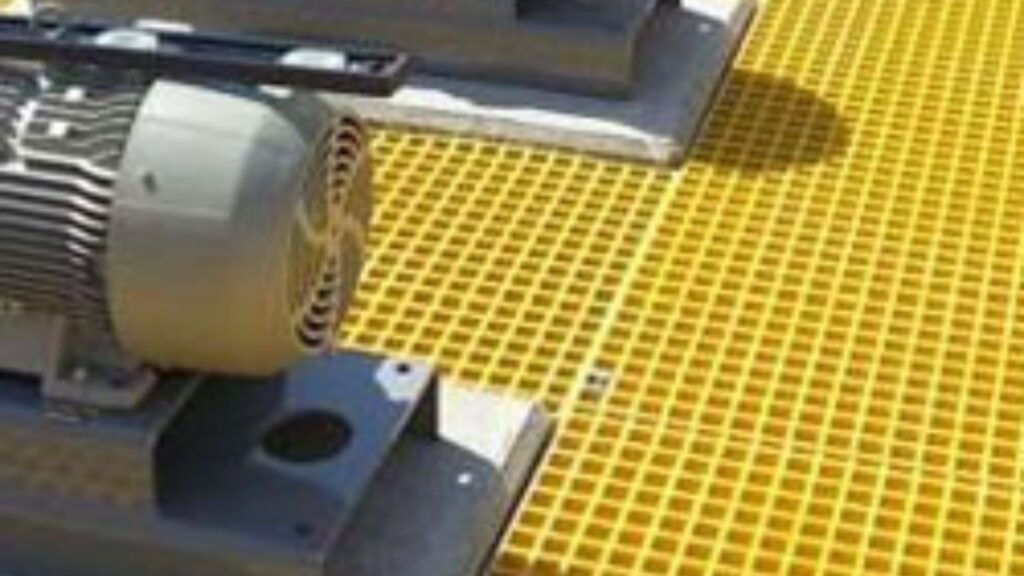Sustainability and Performance: The Advantages of Industrial Fiberglass Covered Grating


Industrial environments require robust solutions to ensure safety, durability, and efficiency. In this regard, industrial fiberglass-covered grating stands out as a versatile and reliable option. Fiberglass grating is revolutionizing various sectors, from manufacturing plants to chemical facilities, offering a combination of sustainability and high performance. Let’s delve into the myriad benefits and applications of this innovative product.
Enhanced Durability for Industrial Applications
In demanding industrial settings, durability is paramount. Fiberglass grating manufacturers understand this need and have developed products that excel in harsh environments. Industrial fiberglass-covered grating is resistant to corrosion, chemicals, and extreme temperatures, making it ideal for chemical processing plants, offshore platforms, and wastewater treatment facilities. Unlike old-style materials like steel or wood, fiberglass grating does not rust, rot, or warp over time, ensuring businesses’ long-term performance and cost savings.
Versatility in Design and Installation
One of the critical advantages of industrial fiberglass-covered grating is its versatility in design and installation. Fiberglass grating is lightweight, making it easier to handle and install than heavy steel grating. It reduces labor costs and allows faster installation, minimizing downtime for industrial operations. Fiberglass grating can be easily cut to size on-site, enabling custom configurations to fit specific project requirements. Its modular design further enhances flexibility, allowing for quick adjustments and modifications.
Safety and Ergonomics in Industrial Environments
Safety is a top-priority in industrial settings, and fiberglass grating is crucial in promoting a safe working environment. With its slip-resistant surface, industrial fiberglass-covered grating reduces the risk of slips, trips, or falls even in wet or oily conditions. It helps prevent workplace accidents and injuries, protecting both employees and assets. Furthermore, fiberglass grating is non-conductive and non-magnetic, making it suitable for use in electrical and magnetic-sensitive areas where traditional metal grating may pose a safety hazard.
Environmental Sustainability and Longevity
In an era of increasing conservation awareness, sustainability is crucial for businesses across industries. Fiberglass grating manufacturers recognize the importance of eco-friendly solutions and have developed durable and environmentally sustainable products. Industrial fiberglass-covered grating is made from used materials and is fully decomposable at the end of its lifespan, minimizing its environmental impact. Furthermore, its long service life and low maintenance requirements contribute to overall sustainability by reducing the need for frequent replacements and repairs.
Cost-Effectiveness and Return on Investment
While the initial cost of fiberglass grating may be higher than that of traditional materials, its long-term benefits far outweigh the upfront investment. Industrial fiberglass-covered grating requires minimal maintenance and a significantly longer service life than alternatives like steel or wood. This translates to lower lifecycle costs and a higher return on investment for businesses. Additionally, the lightweight nature of fiberglass grating reduces shipping and installation costs, enhancing its cost-effectiveness.
Conclusion
Industrial fiberglass covered grating offers many advantages, from enhanced durability and safety to environmental sustainability and cost-effectiveness. Its versatility, reliability, and long-term performance make it a preferred choice for various industrial applications. As businesses strive to optimize efficiency and minimize risk, fiberglass grating emerges as a solution that meets operational and environmental objectives. With ongoing progressions in technology and manufacturing processes, the future looks bright for industrial fiberglass grating, paving the way for safer, more sustainable industrial environments.


